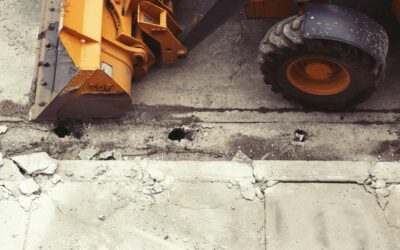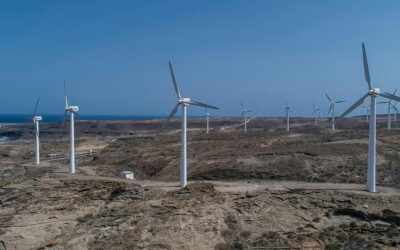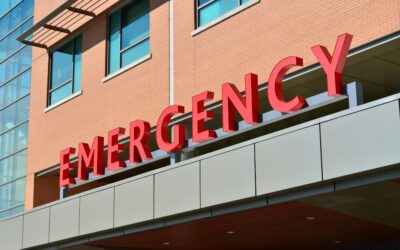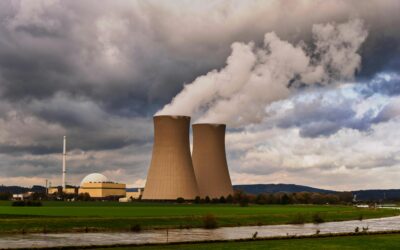Voters have approved Oklahoma City’s (OKC) historic $2.7 billion general obligation bond, greenlighting an expansive slate of infrastructure and quality-of-life projects to reshape the city over the next decade. The package allocates about three-quarters of funding to streets, bridges and drainage, while also supporting parks, public safety facilities, transit, housing and city services.
Oklahoma is the only state in the nation that prohibits cities from using property tax revenue for operating expenses. With no alternative source of funding for capital projects, city officials said the bond was essential to launch the improvements OKC needs. Voters on Oct. 14 approved the bond, passing 11 propositions and authorizing 547 individual projects. The measure maintains the current 16-mill tax rate, while channeling debt service into capital investment rather than day-to-day operations.
This year’s bond allocations are as follows:
- Streets: $1.35 billion.
- Parks & Recreational Facilities: $414 million.
- Drainage Control/Flood Prevention: $140 million.
- Fire Facilities: $130 million.
- Public Safety Facilities: $107 million.
- Transit & Parking System: $129 million.
- Bridges: $90 million.
- Traffic Systems: $81 million.
- Libraries & Learning Centers: $52 million.
- City Maintenance, Data & Municipal Services/Support Facilities: $47 million.
- Economic & Community Development: $175 million.
Streets
The lion’s share—about $1.35 billion—will go toward streets and roadway improvements across OKC. That funding supports 382 projects, including resurfacing both arterial and residential streets, adding or enhancing sidewalks, widening select roads to improve traffic flow and undertaking streetscape upgrades to boost safety and connectivity.
Parks & Recreation
Parks and recreation come next with $414.29 million committed. That money will fund renovations, expansions and upgrades to public parks and recreation centers. City officials have also planned improvement of trail systems and enhancements to recreational and cultural venues like Bricktown Ballpark, State Fair Park and Civic Center Music Hall. The city is planning a new Swisher Park in the western part of the city, along with new youth centers, a dog park in South Lakes Dog Park, the third phase of a Route 66 Park and new athletic fields in Wheeler Park and McKinley Event Center.
Drainage & Flood Control
For drainage control and flood prevention, the bond allocates $140.44 million to tackle vulnerability in stormwater systems. The funds will go toward 44 different drainage projects designed to reduce flooding risks in neighborhoods, repair or modernize infrastructure in drainage basins and reinforce stormwater management capacity citywide.
Fire Facilities
Emergency responders also receive attention. The bond devotes $130 million to fire facilities. That includes constructing three new fire stations (with a focus on underserved areas), upgrading or renovating existing ones and building a new training facility for fire and police crews. The city will also dedicate funds toward improving maintenance to support facilities.
Public Safety Facilities
Another $107.34 million is set aside for police, courts and family justice facilities. Planned uses cover four major public safety projects, including a new $70 million police and court annex across from headquarters, an $8 million police station in west Oklahoma City, a $19.85 million parking garage and a new family justice center. Funds will also go toward upgrading security, technology and operational capacity in justice and court facilities.
Transit & Parking
Transit and parking needs get $129.67 million across three projects. The bond will fund a new $86 million transit operations and maintenance facility, modernize the EMBARK bus fleet and construct a $35 million downtown parking garage to replace the existing convention center lot.
Bridges
Bridge projects receive $90.6 million. A total of 25 bridges are slated for repair, replacement or stabilization to preserve critical connectivity across flood plains, rivers and road corridors. City officials noted regular repairs are necessary to prevent small issues from snowballing into costly or disruptive problems for drivers and pedestrians down the line.
Traffic Systems
To improve traffic flow and safety, $81.03 million is earmarked for 25 traffic systems projects. That includes upgrading or replacing traffic signals, implementing citywide street lights, improving intersections and deploying modern traffic control technologies in key corridors.
Libraries & Learning Centers
The bond also designates $52.48 million for seven libraries and learning centers. The plan calls for renovations to existing branches, roof and infrastructure updates, expansions of key libraries like Ralph Ellison, development of a new $6 million library in west OKC and the $10 million enhancement of archival or exhibit spaces in cultural centers.
City Maintenance
The bond puts $47.07 million to support city maintenance, data and municipal support facilities. These funds will upgrade or build facilities like maintenance yards, data centers, storage and support buildings that the city uses to deliver services and maintain infrastructure. City officials note these 17 projects will allow for upkeep that helps to extend their lifespan.
Economic & Community Development
Economic & Community Development is receiving $175 million, which is meant to revitalize communities, creating more jobs and affordable housing. Of that total, about $125 million will go toward economic development programs, including incentives to attract businesses, preparing industrial sites, funding infrastructure loans, supporting small business growth and other community revitalization efforts.
The remaining $50 million is earmarked for affordable housing: to incentivize new affordable housing developments, preserve existing ones, support infrastructure tied to housing and update city policies and building codes to help facilitate more housing options.
$2.7 Billion Bond
According to officials, these bond investments were chosen with a focus on critical infrastructure to improve the health and safety of those who live in OKC. Leaders prioritized projects most likely to create a positive impact for the widest range of people, with a special effort to align goals with ongoing efforts like Better Streets, Safer City and MAPS 4.
City officials said work could begin as early as next year, with projects scheduled over the next decade based on design readiness and community need. The city council will now finalize timelines and funding schedules for each proposition, ensuring bond proceeds are issued in phases to match project milestones and maintain the city’s current tax rate.
Photo by Quintin Soloviev, CC BY 4.0
https://creativecommons.org/licenses/by/4.0, from Wikimedia Commons







